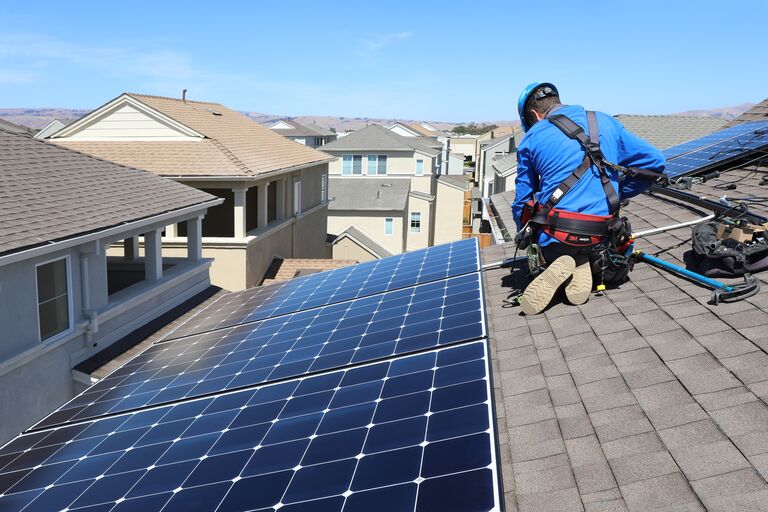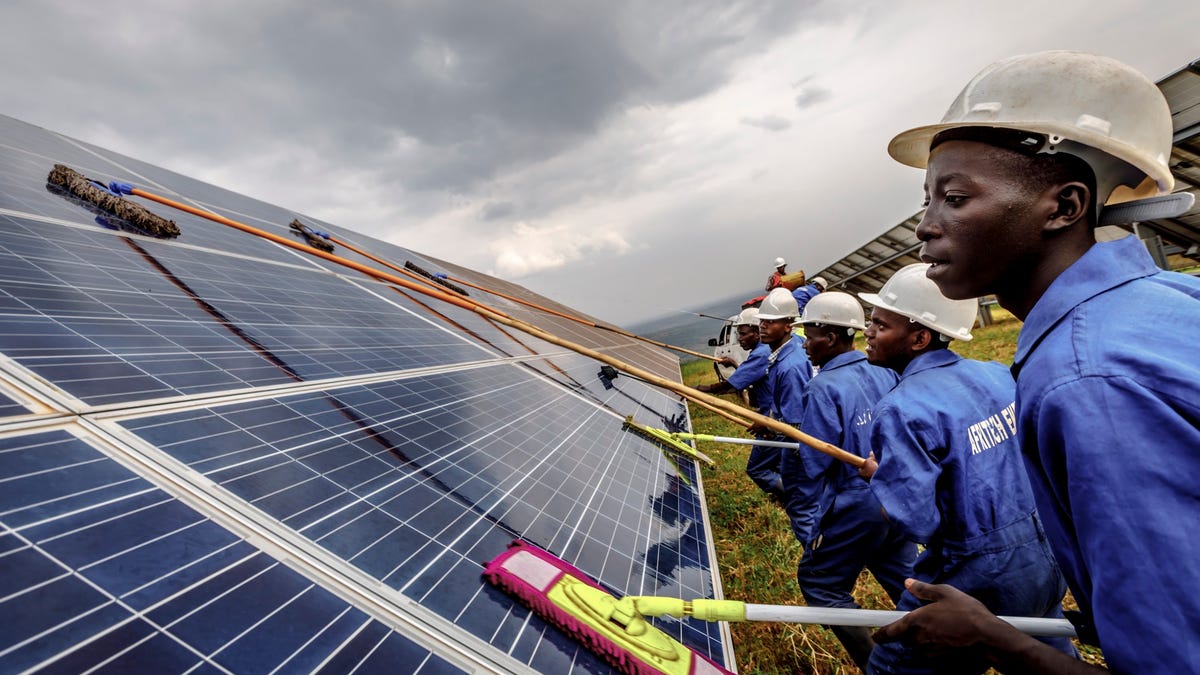Exactly How to Pick the Right Solar Power Installment for Your Energy Needs
Choosing an ideal solar power installment needs a systematic method that starts with a clear understanding of your power intake patterns and expected future requirements. Elements such as the type of solar technology, setup expenses, and available incentives play pivotal duties in making an educated choice.
Assess Your Power Requirements
Analyzing your energy needs is a crucial initial step in the solar power setup procedure. Recognizing your current and future power consumption will certainly guide the style of an efficient solar system customized to your demands.
Take into consideration seasonal variations in power consumption, as certain months may require more power because of home heating or air conditioning needs. Furthermore, review any organized adjustments in way of living or home, such as the acquisition of electric cars or home developments, which might boost your power demands in the future.
When you have a thorough understanding of your power usage, you can establish the suitable solar capability required to fulfill those demands. This evaluation not just aids in sizing the solar installation but likewise notifies choices concerning power storage services and prospective grid connection needs. solar photovoltaic. Inevitably, accurately evaluating your energy needs makes sure that your solar energy system runs successfully, delivering the advantages of renewable resource abreast with your consumption patterns

Evaluate Solar Technology Options
When taking into consideration a solar power installment, it is necessary to review the different solar modern technology choices available to make sure the system aligns with your energy requirements and budget. The main technologies consist of monocrystalline, polycrystalline, and thin-film solar panels, each offering distinctive benefits and drawbacks.
Monocrystalline panels are recognized for their high efficiency and efficiency in limited room, making them suitable for property installations with less roof covering area. They often tend to be more costly. Polycrystalline panels, while a little much less effective, are usually much more budget friendly and can be a good option for larger installations where area is not a restraint. Thin-film photovoltaic panels are lightweight and versatile, suitable for unconventional surface areas, yet they generally have lower effectiveness and call for more space to produce the same energy outcome.
In enhancement to panel kinds, think about solar inverters, which transform the direct present produced by the panels into alternating current for home use. String inverters, microinverters, and power optimizers each have distinct advantages that can influence system efficiency. Assessing these options will help you make an educated decision that fulfills your power demands properly.
Consider Installation Costs
Recognizing installment expenses is vital for anybody thinking about a solar power system. These costs can differ substantially based on a number of aspects, including system size, sort of panels, This Site and setup complexity. A regular domestic solar setup may vary from $15,000 to $30,000 before motivations, which can be a substantial ahead of time financial investment.
To precisely evaluate installment expenses, it is necessary to get in-depth quotes from numerous solar suppliers. These quotes should damage down the costs of devices, labor, allows, and any kind of additional devices required for the setup. Pay attention to the top quality of products being provided, as higher-quality panels and inverters can cause better performance and long life, possibly countering greater initial expenses.
Moreover, think about the lasting implications of installation costs. A less costly installation may conserve money ahead of time yet could cause greater maintenance costs or reduced energy production gradually. It is likewise recommended to assess funding options, such as solar loans or leases, which can affect your overall economic commitment.
Research Study Resident Incentives
Checking out regional incentives can significantly affect the general cost of a solar energy installment. Lots of regions offer a selection of economic motivations aimed at promoting renewable power usage, making solar energy a lot more available and economical for homeowners and organizations alike.
These rewards might include federal tax obligation credit ratings, state discounts, and local energy company programs that give money motivations or internet metering options. For circumstances, the Federal Investment Tax Obligation Credit Score (ITC) permits you to deduct a considerable percent of your solar installation prices from your federal taxes. State-specific rewards can further improve these financial savings, often in the type of straight money discounts or tax obligation credit reports.
Additionally, some neighborhood governments might supply home tax obligation exceptions for solar installations, guaranteeing that your financial investment does not enhance your building tax obligation liability. Researching these incentives can uncover substantial financial savings, which can affect your decision on the size and type of solar system to install.

Choose a Trustworthy Installer
Choosing a reputable installer is vital to guaranteeing the success and long life of your solar energy system. The installment process substantially influences the performance and effectiveness of your photovoltaic panels, making it critical to pick a specialist with a proven performance history. Begin by looking into local installers through on the internet testimonials and testimonials. Internet sites such as the Bbb can supply understanding into customer satisfaction and solution integrity.
Next, validate the installer's credentials, including licenses, accreditations, and insurance coverage. A credible installer needs to hold qualifications from identified organizations, such as the North American Board of Qualified Power Experts (NABCEP), showing a high degree of experience. In addition, make inquiries regarding the installer's experience with comparable jobs, especially in your useful link area, as local climate and regulations can affect installment practices.
Demand several quotes and compare them not just on rate however likewise on the top quality of tools and warranties supplied. A reliable installer must offer transparent details regarding their product or services, assisting you make a notified decision. By spending time in picking a trusted installer, you will certainly boost the total efficiency and toughness of your solar power system.
Conclusion
In final thought, selecting the ideal solar power installation requires an extensive assessment of power needs, an understanding of offered solar technologies, and a cautious consideration of installment costs. Exploring regional motivations can improve financial advantages, while choosing a reputable installer makes sure quality craftsmanship and dependability. solar photovoltaic. By carefully analyzing these elements, people can achieve an ideal solar remedy that satisfies both existing and future power demands, inevitably contributing to lasting power practices and expense financial savings over time